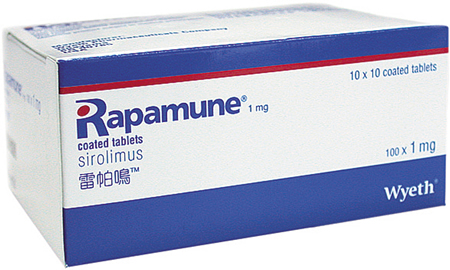Magnesium is a mineral (a metal) that the body requires for over 300 different biological reactions, and in fact virtually every living organism requires it. While we ingest magnesium in food, the evolutionarily recent upsurge in processed food consumption means that many people are magnesium deficient, which can have dire consequences. Adequate dietary magnesium lowers death rates.
Magnesium decreases death rates
Many studies have looked at the relation between magnesium and health, so a recent meta-analysis (analysis of other studies) reviewed 40 different studies that used a total of over 1 million people: Dietary magnesium intake and the risk of cardiovascular disease, type 2 diabetes, and all-cause mortality: a dose–response meta-analysis of prospective cohort studies. A prospective cohort study collects various data on a group of people at one point in time, and then follows them for a period of time to see what happens to their health.
The study found no relation between cardiovascular disease and magnesium intake, which the authors felt may be due to a limited number of studies in their analysis.
The study did find a lower incidence of stroke, heart failure, type 2 diabetes, and all-cause mortality.
Specifically, each 100 mg per day increment in magnesium intake was associated with risks of
- 7% less stroke
- 22% less heart failure
- 19% less diabetes
- 10% lower all-cause mortality, that is, death from any cause.
Graphically illustrated, that looks like this:

Among U.S. adults, 68% consumed less than the recommended daily allowance of magnesium, so the relation of magnesium to health is not a trivial matter.
Note that all of the above is based on association, and causality is not proven. But given the benefits of magnesium supplementation, we have good reason to believe that increasing magnesium intake will benefit health.
How to get more magnesium
If you consume more magnesium, you could save yourself from a number of health problems, not to mention an early grave. The Recommended Daily Allowance (RDA) for magnesium is 420 mg for men and 320 mg for women.
People normally have about 22 to 26 grams of total magnesium in their bodies, which shows its great importance – compare to iron at about 3 to 4 grams.
Magnesium is lost on a daily basis via normal excretion, including sweat and urine. Alcohol consumption can cause greater-than-usual loss of magnesium.
Foods that are high in magnesium include leafy greens such as spinach, as well as cocoa, nuts, and beans. This could be an important reason that chocolate and nuts have been found to have health benefits.
Hard water used to be an important source of magnesium, but is less so now since fewer people drink it. Drinking hard water is associated with lower rates of sudden cardiac death.
Personally, I take 200 mg of magnesium as a supplement daily. Different types of magnesium have widely variant rates of absorption, and it’s been consistently shown that magnesium citrate is most bioavailable. (Here’s the brand I use.)
Bottom line
Be sure you get enough magnesium. If you eat a diet of whole, unprocessed foods and don’t drink alcohol excessively, you’re likely fine. If you eat processed junk and drink soda, you’re likely not fine.
I take a magnesium supplement for insurance. It’s that important.










12 Comments
Hi PD, nice to be reminded of the importance of magnesium in the diet and if necessary via supplements.
A couple of comments:
1; It would be good to access an actual research trial which studied the effect over time of magnesium supplementation versus a placebo with no added magnesium taken.
I say this because the main source you use is a review study of other research trials which all seem to be observational in nature. And observational studies can be inaccurate.
2: I have been taking magnesium supplement for 5 or so years now. A year ago I found the cost of capsules was to expensive and switched to magnesium citrate powder. ( 150 grams for about $25.00 Au. ) But that makes the daily dose – measured using a tea spoon and mixed with water- and a bit more ‘erratic’.
So I’m wondering if you know of any side effects. from too much magnesium ?
Bill, it’s possible to get too much magnesium, but difficult unless mega-dosing. High magnesium levels are usually seen in people with kidney disease.
PD have you heard of detumescence therapy for hairloss and if so, what is your opinion?
There is a study by Henry Choy – Detumescence Therapy of Human Scalp for Natural Hair Regrowth
He was able to regrow hair in all subjects with certain massage, talks about blood flow, scalp thickness etc
Ted, all new to me, so no opinion.
I’d like to see if that study duplicated with magnesium supplementation as the variable instead of diet. It seems that since magnesium-laden foods are so healthy in general, its tough to know if its the magnesium doing the work, or all the other micronutrients that are packed into those foods.
PD,
Ive read that magnesium is more readily absorbed transdermally (through the pores of the skin).
Ive found that the cheapest way to get magnesium is by making a solution of magnesium sulfate or magnesium chloride and water, and spraying on then rubbing in to the skin.
A carton of epsom salt should last a year or so.
On further research, there have been no legitemate studies which support transdermal absorption of magnesium.
Back to chelated magnesium pills.
I have tried many different kinds of magnesium, including chelated varieties. They all have me running to the toilet within 2 hours. Even as little as 25mg starts moving my bowels. I don’t know how anyone can tolerate the stuff.
Use a spray then. Doesnt go through your digestive system, so it shouldn’t cause any issues.
I suggest that you are taking magnesium oxide which is the most common type sold but is very hard to absorb and causes anyone taking it to have the shits.. It’s sold for breaking constipation as ‘milk of magnesia’..
Instead try Magnesium citrate. I take 3-4 grams a day with no ill effects.
@Bill, no I meant what I wrote. I have tried all kinds of mag. Magnesium glycinate, Mag L Threonate, Mag Taurate, Mag citrate and mag malate. I also tried spray on magnesium as well as injectable magnesium. All of them make my bowels churn.
It’s pretty common. I think the unpleasant bowel effects are why mag is not as popular as it needs to be.
BTW, I get the same effect from too much vitamin C. 500mg of C sends me right to the toilet. And 500 is not a very high dose.
I have that reaction to every form until I tried magnesium-l-threonate. I was looking for the memory-improving aspect, and was pleasantly surprised at the lack of intestinal distress I experienced. No diarhhea.